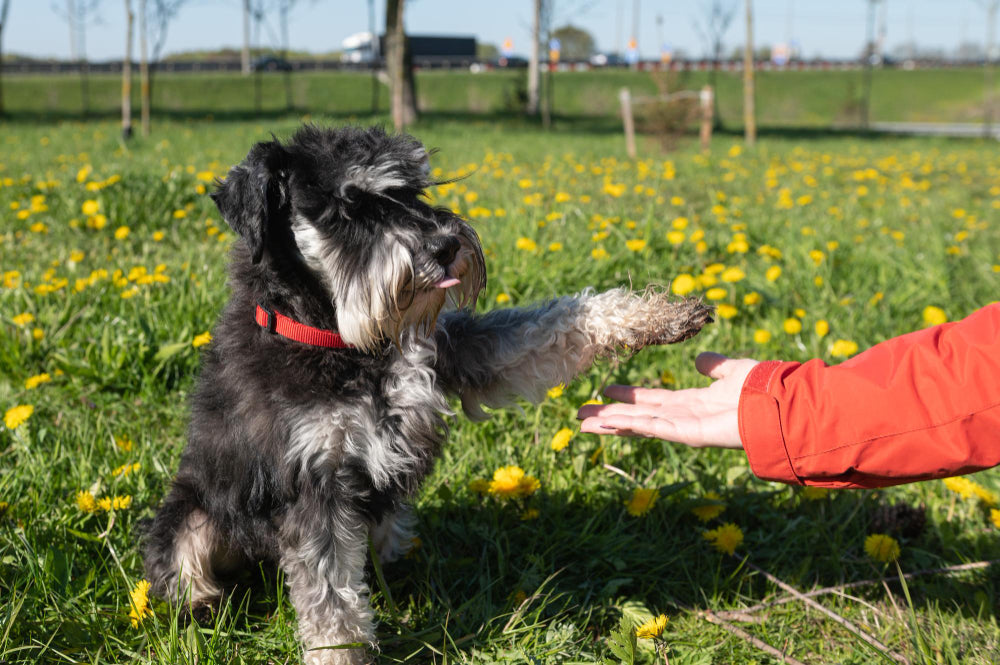In the delightful journey of pet ownership, we all dream of a well-behaved and harmonious relationship with our furry companions. Yet, transforming a dog's behavior can be a challenging task, requiring patience, understanding, and a dash of creativity. Fear not, for we've compiled a list of 10 proven tips that are not only effective but also infused with a touch of wit to make the journey enjoyable for both you and your four-legged friend.
-
Communication is Key: Bark in Their Language
- Dogs are expert communicators, but they don't speak English. Instead, they rely on body language and vocalizations. Learn to interpret your dog's signals – a wagging tail doesn't always mean joy, and a low growl might be a sign of discomfort. Speak their language, and you'll find your conversations becoming clearer and more meaningful.
-
Positive Reinforcement: Treat Them Right
- Forget the old adage "you can't teach an old dog new tricks." With positive reinforcement, you can motivate and shape your dog's behavior at any age. Reward good behavior with treats, affection, or playtime, and watch as your dog eagerly embraces the habits you want to instill.
-
Consistency is Canine Gold: Set Clear Rules
- Dogs thrive on routine and consistency. Establish clear rules and boundaries, and stick to them. If you allow your pup on the couch one day and scold them the next, confusion sets in. Consistency helps your dog feel secure and understand what's expected of them.
-
Exercise the Mind: A Tired Dog is a Happy Dog
- Mental stimulation is as crucial as physical exercise. Engage your dog's brain with puzzle toys, interactive games, and obedience training. A tired mind leads to a content and well-behaved pooch.
-
Master the Art of Patience: Rome Wasn't Built in a Day
- Transforming behavior takes time. Patience is not just a virtue; it's a necessity. Dogs learn at their own pace, and pushing too hard can lead to resistance. Celebrate small victories, and your dog will gradually become the well-mannered companion you've always envisioned.
-
Socialization Soiree: Exposure is Everything
- Introduce your dog to various environments, people, and other animals. Socialization helps prevent fear and aggression, fostering a confident and friendly demeanor. Gradual exposure builds resilience, turning your pup into a social butterfly.
-
Decode the Body Language: Tail Wagging Tales
- Understanding your dog's body language is crucial. A wagging tail may signal excitement or nervousness, while a tucked tail can indicate fear. By becoming fluent in canine body language, you'll navigate your dog's emotions with finesse.
-
Redirect Undesirable Behavior: Turn the Tables
- Dogs might engage in undesirable behaviors out of boredom or frustration. Instead of scolding, redirect their attention to an appropriate activity. Provide alternatives, and you'll find your dog willingly swapping bad habits for good ones.
-
Professional Guidance: Canine Coaches and Classes
- Consider enrolling in obedience classes or seeking guidance from a professional dog trainer. These experts can provide personalized advice, addressing specific behavior issues and offering valuable insights for a well-behaved pet.
-
Unleash Love: A Happy Dog is a Well-Behaved Dog
- Above all, shower your furry friend with love and affection. A secure and content dog is more likely to exhibit positive behavior. Strengthen the bond between you and your pet, and you'll discover that a happy dog is, indeed, a well-behaved dog.
Transforming your dog's behavior requires a combination of patience, positive reinforcement, and a willingness to understand your pet's unique language. By implementing these 10 proven tips with a touch of wit, you'll embark on a rewarding journey towards building a stronger, more harmonious relationship with your four-legged companion. After all, a well-behaved dog is not just a testament to effective training but also a reflection of the love and care they receive from their human counterparts.

